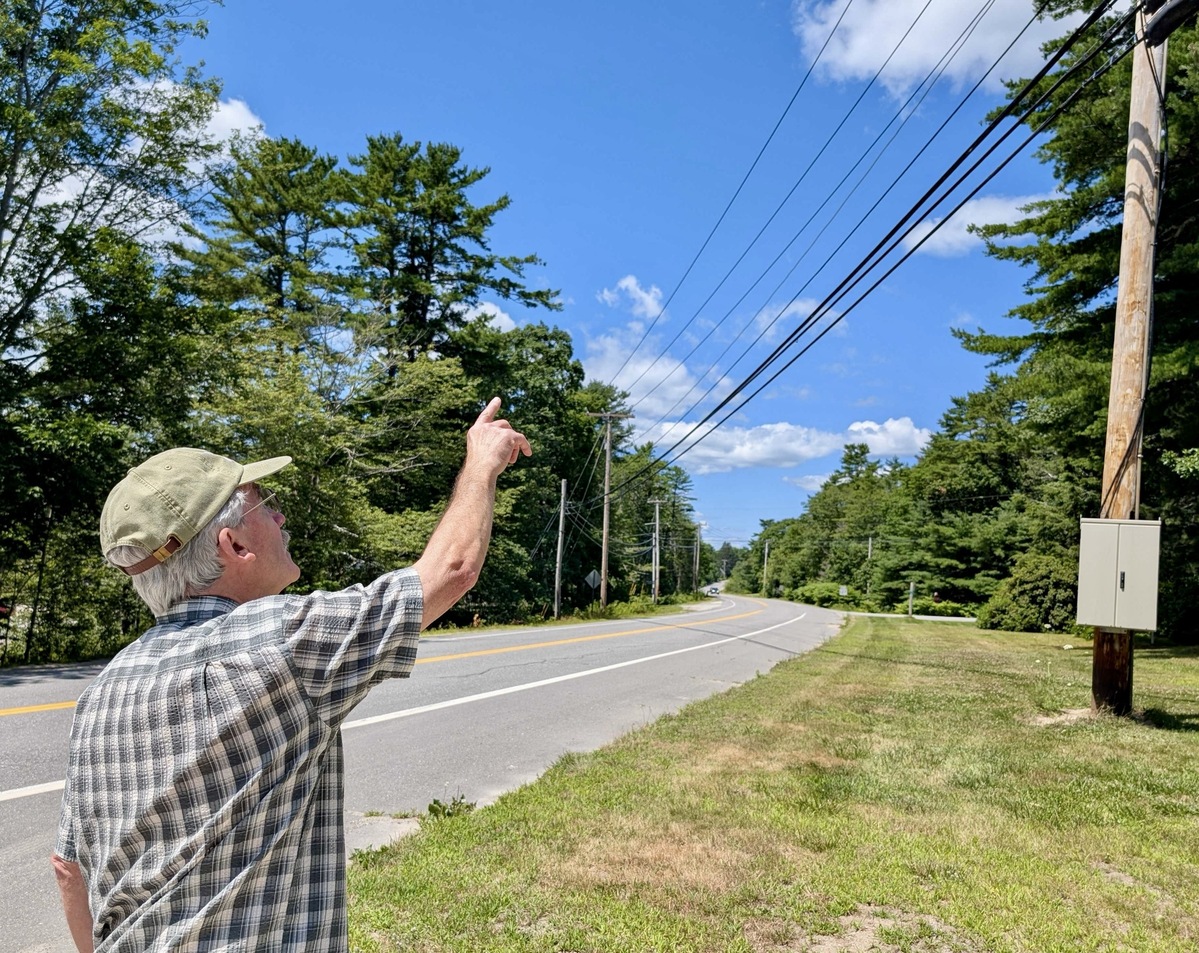ARROWSIC, Maine — After national companies declined to extend internet service to this small midcoast town, it built its own network. Now one of those giants is moving in.
The Arrowsic Broadband Authority was formed at a special town meeting in 2020 to manage the system. In March 2024, the first of Arrowsic’s roughly 500 residents got broadband service for the first time. It took the town nearly a decade and more than $1 million in federal and private funding.
This spring, locals started receiving mailers from Fidium, which offers broadband in eight states, offering service at starting rates significantly lower than those offered by the town. Now, local officials are urging residents not to switch to maintain their business model.
“We are a very small network,” Vince Capone, a commissioner on the local broadband authority, said. “We are literally on the edge of maintaining that network because we have such a small customer base.”
Fidium’s parent company said competition with the town was not central to its expansion. But it echoes past tension in Maine towns between incumbent broadband providers and municipality-owned networks. An industry group advertised against proposed networks that were rejected in 2022 by Readfield and Southport voters.
Within weeks, Fidium will offer starting rates of $30 per month to Arrowsic residents, according to the mailers. Those rates will increase after one year of service. A service with similar download speeds from the local authority’s partner, Axiom Technologies costs $49.99, per month. Most of the town — more than 200 homes and businesses out of roughly 235 — is signed up.
Eventually, the Arrowsic authority will pay into the town’s budget. But since it is responsible for its own equipment and storm damage repairs, officials are first aiming to put away a few hundred thousand dollars for future maintenance.
Officials estimate that as early as 2029, the authority could pay Arrowsic about $50,000 a year if large numbers of residents don’t switch to Fidium. Losing even 20 percent of its customer base would be a “critical problem,” Capone said.
The town’s financial risk is limited. It has no debt connected to the broadband project, which was largely funded by the federal American Rescue Plan Act of 2021. However, officials said that if the authority is unable to build its reserves to meet demand for storm repairs, the town could be forced to dip into its own savings or borrow money to keep the network afloat.
Fidium’s arrival has flummoxed local officials, partly because its parent company, Consolidated Communications, declined to build broadband infrastructure in Arrowsic years earlier, said Don Hudson, another commissioner.
“It came as some surprise when all of a sudden we started seeing, essentially, a duplicated system being built on top of ours,” he said. “If it wasn’t actually happening, it would be laughable.”
Consolidated Communications, Fidium’s parent, owns many of the telephone poles in town. The local group had to pay tens of thousands of dollars to put its cables on them. That ownership has made it simple for Fidium to begin installing its own fiber without any approval from Arrowsic officials.
Machias-based internet service provider Axiom Technologies runs the town’s broadband service. Its CEO, Mark Ouellette, was also surprised to hear of Fidium’s entrance into Arrowsic. His company, which provides internet to several Maine towns, isn’t backing down.
“Typically, when another provider is in the community with fiberoptics, it’s quite a challenging business case to be made to build out fiber on top of fiber already there, especially in small places,” he said. “We are going to make a strong case that community cyber connectivity is an important asset for the community … because we return a percentage of our fees to the customer, back to the town.”
The town’s infrastructure is connected to the neighboring city of Bath, where around 9,700 homes and businesses are set to be connected to broadband through Fidium’s ongoing upgrades. Arrowsic’s new infrastructure was “spillover,” company spokesperson Kyle Thweatt said.
“Providing more fiber connectivity options in communities benefits everybody in that area,” Thweatt said.
Whether or not locals will switch remains to be seen, but officials in Arrowsic said they were confident residents would see the benefits of local control.
“People who live in Arrowsic have a great fondness for Arrowsic,” Hudson said of his neighbors. “And they really love this network that we built.”
Daniel O’Connor is a Report for America corps member who covers rural politics for the Bangor Daily News and the Maine Monitor. Additional support for this reporting is provided by BDN readers.
